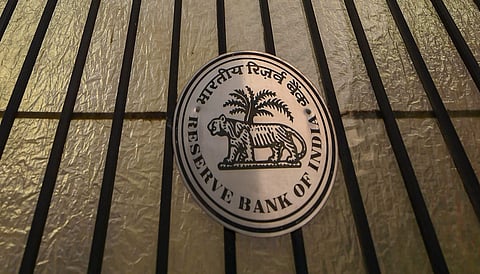

NEW DELHI: In a fresh turn of events, the Reserve Bank of India (RBI) superseded the board of directors of Lakshmi Vilas Bank (LVB), in consultation with the central government, for a period of 30 days owing to serious deterioration in the financial position of the bank. According to a statement from the finance ministry, LVB will not be allowed to make any payment worth more than Rs. 25,000 to the depositor during the moratorium period until December 16, 2020. Borrowers, however, can exceed the withdrawal limit only for unforeseen expenses including medical treatment, education, and marriages with permission from the RBI.
Meanwhile, the banking regulator seems to have finally found a suitable white knight for the cash-starved bank. On Tuesday, it proposed to merge LVB with DBS Bank India (DBIL), the local unit of Singapore-based DBS Holdings. The proposed LVB-DBS recast plan has been shoehorned to restore normalcy at the beleaguered private lender which is in desperate need of capital to stay afloat. “DBIL has a healthy balance sheet, with strong capital support. Although the DBIL is well capitalised, it will bring in additional capital of ₹2,500 crore upfront, to support credit growth of the merged entity,” RBI said.
DBIL’s Capital to Risk Weighted Assets Ratio (CRAR) would remain healthy after merger at 12.51 per cent and CET-1 capital at 9.61 per cent, without considering the infusion of additional capital. As on June 30, 2020, its CRAR was comfortable at 15.99 per cent (against the regulatory requirement of 9 per cent).
The proposed deal is the second such instance this year when the central government had to step in. A similar moratorium had been imposed on Yes Bank earlier this year which was later rescued by an SBI-led consortium. It also marks the end of the Chennai-headquartered lender’s efforts to clinch a deal with Clix Group as both couldn’t come with a concrete rescue plan. A preliminary non-binding letter of intent was signed between LVB and Clix Capital back in June. For now though TN Manoharan, former non-executive chairman of Canara Bank, has been appointed as the administrator.
Fate of equity investors hangs in balance
According to the draft scheme of amalgamation, the entire amount of the paid-up share capital, reserves and surplus will be written off. “On and from the appointed date, the transferor bank shall cease to exist by operation of the scheme, and its shares or debentures listed in any stock exchange shall stand delisted without any further action from the transferor bank, transferee bank or order from any authority,” it noted, seeking feedback from various shareholders.
If the draft scheme is implemented in its current form, LVB shareholders may get nothing out of the proposed merger unlike Yes Bank's shareholders in the case of which SBI and other lenders infused capital to acquire stake in the beleaguered lender but Yes Bank was not merged. It retained its identity and remained listed on exchanges. Key managerial personnel of LVB may lose jobs as the draft scheme provides for DBS to discontinue their services after following due procedure at any time, after the appointed date "as it deems necessary and providing them compensation as per the terms of their employment." Similarly, DBS Bank may also have the option to merge LVB branches as per its convenience and "may close down or shift the existing branches" as per the extant instructions issued by the RBI.
However, depositors' interest will be protected after DBS takes over the bank. On the face of it, LVB's second-quarter numbers remind us of the sorry state of its worsening financials. Gross non-performing assets (NPAs) and net NPAs continue to be too high at 24.45 per cent and 7.01 per cent, respectively. The total business was Rs.37,595 crore at the end of September, as against Rs.47,115 crore at the end of September last year. The bank’s capital levels are at precarious levels with Tier 1 Capital ratio turning negative; the overall Capital Adequacy Ratio was at negative 2.85 per cent as of September.
For the six month period ending September, net loss was at Rs.594 crore as against Rs 256 crore in the year-ago period. Auditors had in the past also warned that a "material uncertainty" in terms of liquidity, asset quality and solvency ratio exists and that may cast a "significant doubt" on the going concern of the headless bank.